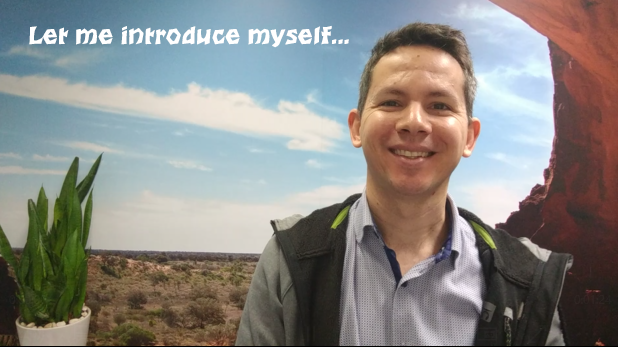“Building one’s personal brand is a continual process” (Johnson 2017 p.26).
Online Maturity:
When we start out with social media we often start with little thought of our personal brand or our audience. We post and share things impulsively that we connect with or thoughts we have at the time. We often don’t think about the image we are building for ourselves online that may lead to a reputation that is hard to repair or, more commonly, we fall in to a state of just being there without a thought on our purpose. We become, the Consumer.
As social media and technology has evolved, so have we. Which brings me to my reflection, I now think about how I present myself online across all platforms I engage on. I am fully aware now of my ability to manipulate my online representation, not to say I hide my true self, but more that I carefully choose what I share with thought of my personal brand and what my audience wants. I look for ways to stay consistent but also ways to share things differently.
- Users find online environments potent sites for constructing and trying out versions of self. The availability of multiple and heterogeneous sites for self-presentation promises seemingly endless opportunities for conveying some “truth” about an “authentic” self for those with access to web technologies. (Smith & Watson 2014, p.74)
Does this just affect me, influencers or businesses? That answer is no. Everyone’s personal brand or self-presentation online has become important. We are all connected far more than we were 10 or 20 years ago, in fact 70% of employers have used social networking information to hire candidates (Salm 2017). This prompts us to be more selective about what representation we make of ourselves, where we make it and who will have access to it (though it is safe to presume everyone will). There’s a lot of W’s there, so here is five things I personally think about before I post on social media today;
1 – WHO: Who is my target audience?

Happy Birthday image by Daniel cairns – CC BY 2.0
Thinking about my audience before I post is probably one of the most important things I’ve learned to do. This is sometimes a simple task, for example the obligatory Happy Birthday message we post on our friends (and strangers?) Facebook wall. But then the following twitter post I made, my target audience was my fellow classmates at Deakin University. It is thought that all students have or are about to have knowledge of social media platforms commonly used at least in western culture. Knowing who your target audience is allows me to better answer the next questions. Think about language, age, location, occupation, literacy and anything else specific about your audience.
So I made a thing for #ALM101 #IMadeSomeMedia, Enjoy 🙂 pic.twitter.com/a2RStzVP0V
— Daniel Cairns (@danielcairns) November 22, 2018
2- WHAT: What is my message?

What is the message I am trying to deliver to my audience? Does the message relate appropriately to that audience? The image of me drinking may have been cool on Facebook in 2011, but it is not me today and nor would it send or compliment a message regarding my professionalism. The twitter media ‘How to Social Media’ I’ve posted in my previous point has a repeating message of security on social media and provides a humorous annotation of my experiences with each media platform. I communicate that I know my stuff, here’s the stuff, and I am human and relatable. In reflection, I was very happy with this post and my ability to introduce humour in a professional environment.
3- WHERE: Where am I publishing?
Which social media platform is most appropriate to publish my message to my target audience? My happy birthday message above might be best on Facebook, or a private message whereas a message regarding marketing my IT specialist skills (below) targeting business professionals might be best on LinkedIn or Twitter. I Probably wouldn’t publish it on Imgur where the audience is more interested in seeing cute kittens and hit and miss memes.
Relax, I've got this… 😎
— Daniel Cairns (@danielcairns) December 2, 2018
.#IMadeSomeMedia #ALM101 pic.twitter.com/CzDNt9VYPH
4- WHEN: When am I publishing?

When I know my audience, where I plan to post, I can do a little research to find when my audience is most likely where. I can choose the best time to post my content based on when most people are likely to be online to see and interact with it. This research article, “Best Times to Post on Social Media: 2018 industry Research” by Alex York displays visual heat-maps for each platform broken in to various industry verticals.
“The best time to post on Twitter is Friday 9 to 10 a.m.” (York 2018).
5- WHY: Why am I sharing?
I ask myself why I am posting this. Is it for my own narcissistic self-gratifying purpose [A topic for another blog] or does it provide some form of value to defined audience? If the answer is the former, I may decide not to hit that send button.
Just because I have something to say, doesn’t mean I should say it, I look for the value.
Your turn:
How does your personal brand look today? Google your name, look at your recent social media activity or ask a friend/colleague for some honest feedback. Let me know in the comments below what you might do differently now or reach out if you’d like to discuss further.References:
• Johnson, KM (2017), The Importance of Personal Branding in Social Media: Educating Students to Create and Manage their Personal Brand, International Journal of Education and Social Science, 4, 1, 26, retrieved: 10 December 2018, < http://www.ijessnet.com/wp-content/uploads/2017/02/3.pdf >
• Salm, L. (2017). 70% of employers are snooping candidates’ social media profiles. Career Builder. Retrieved: 10 December 2018, < https://www.careerbuilder.com/advice/social-media-survey-2017 >
• Smith, S and Watson, J (2014), ‘Virtually Me: A Toolbox about Online Self-Presentation’, in Poletti, A and Rak, J, Identity Technologies: Constructing the Self Online, The University of Wisconsin Press, Madison, pp. 70-95
• York, A (2018), Best Times to Post on Social Media: 2018 Industry Research, Sprout Social. Retrieved: 10 December 2018, < https://sproutsocial.com/insights/best-times-to-post-on-social-media/ >


